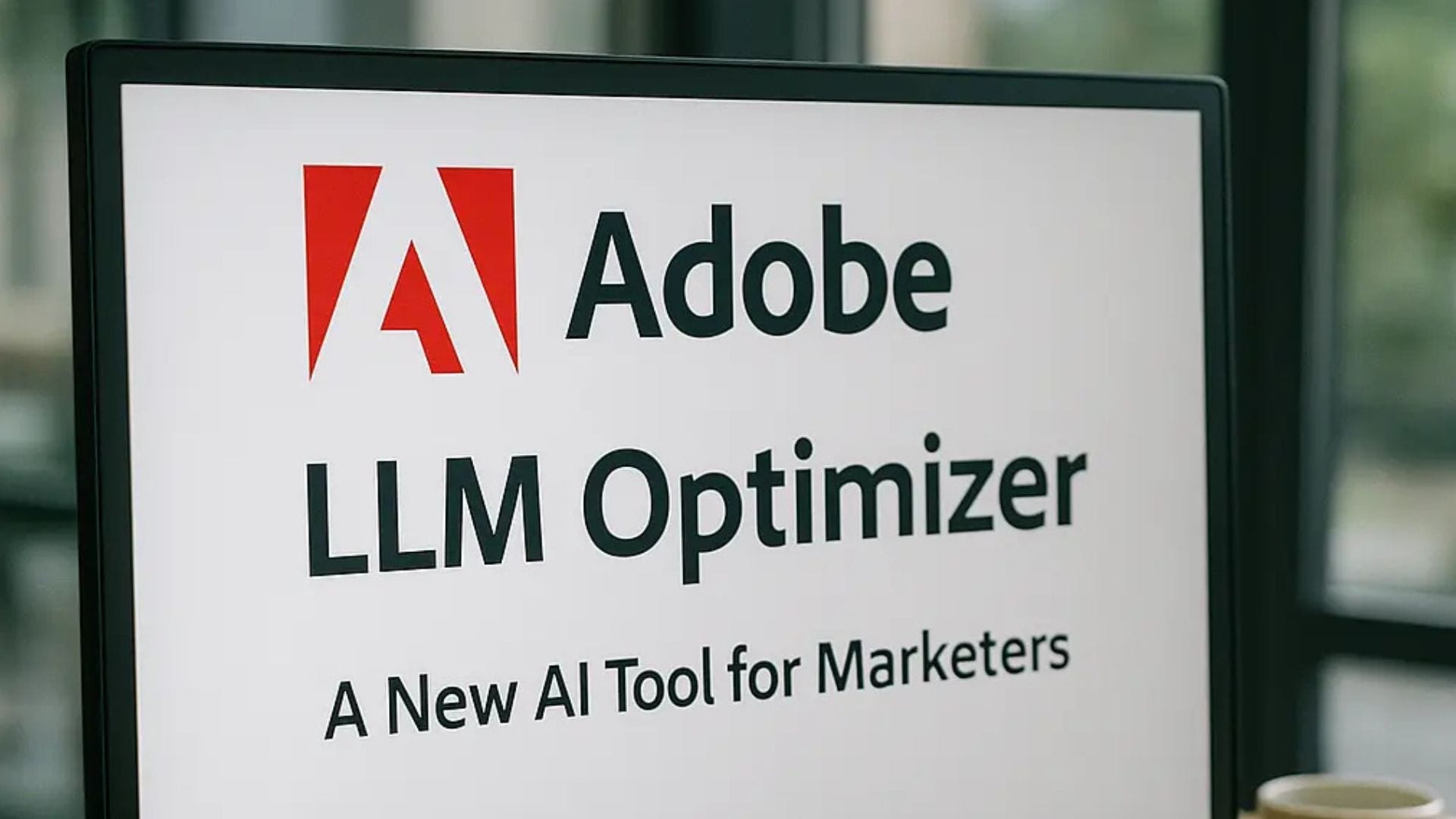Adobe launches LLM Optimizer as AI replaces search engines in content discovery
Adobe unveils LLM Optimizer to help brands appear in AI chats like ChatGPT as AI becomes the new way people discover and shop.

You may no longer turn to traditional search engines like Google when looking for a product, service, or answer to a question. Instead, tools like ChatGPT, Gemini, and Claude are becoming your go-to sources. These AI-powered assistants are changing how people explore content and make buying decisions—and Adobe wants to help businesses keep up.
Adobe has introduced a new tool called LLM Optimizer to support this shift. This tool is designed to help brands improve their presence across generative AI platforms. According to Adobe, LLM Optimizer tracks how your brand content appears in AI responses and suggests how to improve it.
Even more impressively, the tool estimates the potential increase in traffic—and the monetary value attached to that traffic—based on specific changes. This lets you decide where to focus your efforts for the biggest return.
Traffic from AI chatbots is soaring
Adobe says that from July 2024 to May 2025, visits to U.S. retail websites driven by generative AI tools increased by 3,500%, and travel websites saw a 3,200% jump during the same period. These numbers suggest a major change in how consumers discover information and make purchasing decisions.
“Generative AI interfaces are becoming go-to tools for how customers discover, engage and make purchase decisions across every stage of their journey,” explained Loni Stark, Adobe’s Vice President of Strategy and Product at Experience Cloud.
LLM Optimizer gives businesses a real-time overview of how their content is performing in these AI systems. It shows you what kinds of queries are popular in your industry, how your brand is represented in responses, and how you compare to competitors. Based on that data, you can adjust your content to be more visible and effective inside AI tools.
Recommendations and updates made easy
One key feature of Adobe’s new tool is its ability to point out gaps in your brand’s visibility. It checks your websites, FAQs, and even outside platforms like Wikipedia to see how well your brand is represented.
The tool then provides a list of practical recommendations to improve your visibility. These range from technical fixes to content suggestions—all designed with generative AI in mind. Adobe says these recommendations are based on factors that AI systems value most, such as accuracy, authority, and informativeness of the content.
Moreover, the tool offers a one-click implementation for some of these fixes. Whether a content update or a code change, the process is streamlined to reduce delays and make things easier for your team.
While this new approach is exciting, it also raises questions. For users who care about online privacy and already use tools that block tracking or ads, the idea of businesses optimising to appear inside AI chats may cause concern. People may ask how content gets pulled into these chats and whether it’s being appropriately credited.
Adobe has responded by stating that the tool is built with “enterprise-ready frameworks” and is compatible with external systems and agency workflows. However, the wider ethical and transparency issues surrounding this optimisation remain open for discussion.
As consumer habits shift and AI becomes the new standard for digital discovery, tools like Adobe’s LLM Optimizer may soon become essential for keeping your content visible, accurate, and influential.
















